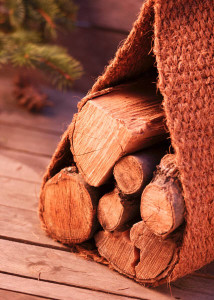Three Common Chimney Inspection Stories
Fred and his family have lived in the same home since it was built over 9 years ago. Every year during the cooler months, they enjoy gathering around the big pot belly stove that sits in the corner of their living room, providing warmth and comfort as it always has. Fred marks the beginning of the season with his annual order of one cord of firewood, which usually gets him through, more or less. The wood is always properly seasoned and stored, and on the day it arrives, his wife will make a big pot of chili as she always does, and the kids will help him unload the wood and stack it on the rack. Afterwards, they will all gather around in the living room and enjoy the first golden fire of the season.
But Fred has never taken this important appliance for granted. Every year, he calls out his local chimney service company to perform a Level 1 inspection, and if necessary, a cleaning. The purpose of the inspection is to make sure that the stove and venting are in good serviceable condition, and there are no leaks, combustible deposits or obstructions. Since Fred uses the stove every year, and nothing has changed in 9 years, a Level 1 inspection is all that is needed to keep a well-maintained system working like it always has.
But late last spring there was an earthquake. Nothing too big, but everyone in the area felt it, and most of his neighbors had gathered out in the street in the middle of the night, in slippers and robes, comparing notes and calming down the kids and dogs before returning to bed. Later that same year, several friends down the street had reported some cracks they had never noticed before in the masonry of their homes. It was generally agreed that these new issues were probably related to the earthquake.
So this year, Fred needed a Level 2 inspection of his chimney, just to be safe. In a Level 2 inspection, a certified and trained chimney specialist will use a video camera to inspect the inside liner of the chimney flue, looking for cracks or gaps or other damage that would prevent safe use of a fireplace or stove. The professional will also access hidden areas that intersect with the chimney system, such as basements, crawl spaces or attics, to make sure that proper clearance to combustibles is observed.
During his inspection, the technician observed no damage to the brick, mortar or liner of the chimney system. But when he was in the attic, he did find that a large, high-placed box had spilled over, probably during the earthquake, and its clothing contents had landed against the outer bricks of the chimney, causing a fire hazard. Fred was more than happy to pay for this discovery, because it meant that his family was spared any unnecessary risk that year.
Also this year, Fred has an opportunity to purchase his first rental property. It’s a real country fixer-upper, but given the price and the way the market for such properties has been going, it’s almost too good a deal to pass up.
Given the age and condition of the house, Fred made sure that his offer was contingent upon a Level 3 inspection of the two chimneys, among other things. A Level 3 inspection means that it is necessary to remove certain components of the building or chimney in order to gain the access needed to properly inspect a chimney. In this case, it meant that a small section of plaster above the location of the old stove in the kitchen needed to be removed so that the inspector could determine if repairs would be necessary before a new wood-burning kitchen stove was installed. It also was necessary to remove a chimney crown on the second chimney, which was already in bad repair. These inspections revealed what they needed to reveal, and Fred made adjustments to his offer. If all goes well, his offer will be accepted, and he will start the renovations with his oldest son before the weather gets too chilly.
Chimney inspections are required in order to ensure proper and safe operation of any vented fire appliance. These inspections must be carried out by a certified chimney professional (A CSIA Certified Chimney Sweep). If you are unsure about which inspection level is appropriate in your circumstance, please call us. We would be happy to talk about what we do and how we can help you.

